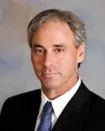One of the primary purposes of bankruptcy is to provide for the discharge of certain debts in order to enable a debtor to obtain a "fresh start" post-bankruptcy. Notwithstanding this specific purpose, section 523 of Title 11 of the United States Code, 11 U.S.C. § 101 et seq. (the "Bankruptcy Code"), provides that certain debts may not be discharged, including debts incurred by "fraud or defalcation while acting in a fiduciary capacity, embezzlement or larceny." 11 U.S.C. § 523(a)(4).
In the recent decision of Bullock v. BankChampaign, N.A., 133 S. Ct. 1754 (May 13, 2013), the United States Supreme Court: (i) resolved a prior split among the Circuits1 concerning whether a "culpable state of mind" was required in order to come within the "defalcation" exception as set forth in § 523(a)(4) of the Bankruptcy Code and (ii) determined that such a state of mind was required in order to fall within this exception. In a unanimous decision, the Court held that "where the conduct at issue does not involve bad faith, moral turpitude, or other immoral conduct, the term requires an intentional wrong." Bullock, 133 S. Ct. at 1759. It added that defalcation could also occur with a conscious disregard for, or willful blindness to, "a substantial and unjustifiable risk" involving "a gross deviation from the standard of conduct that a law-abiding person would observe." Id. at 1759–60 (emphasis in original).
In the Bullock case, the petitioner ("Bullock") was the trustee of a single trust (the "Life Insurance Trust"), created by his father for the benefit of Bullock and his four siblings. The Life Insurance Trust's only asset was a life insurance policy for the father's life. The terms of the Life Insurance Trust permitted Bullock, as trustee, to borrow funds, but only for certain limited purposes.
On three separate occasions from 1981 to 1990, Bullock borrowed money from the Life Insurance Trust. On one occasion, he borrowed money to repay a debt that was due and owed by the father's business—something the father specifically requested of Bullock. The second occasion involved Bullock's borrowing money from the Life Insurance Trust to purchase a mill with his mother, while the third occasion involved Bullock's borrowing money to buy real property for himself and his mother. On all three occasions, Bullock repaid the loans with interest.
Notwithstanding the fact that the trust had been repaid in full, in 1999, Bullock's brothers sued Bullock in Illinois state court, asserting that Bullock had breached his fiduciary duty to the Life Insurance Trust, as these loans were not authorized by the terms and conditions of the Life Insurance Trust. The state court held that Bullock, despite repaying 100 percent of the borrowed money, had breached his fiduciary duty as trustee by engaging in self-dealing. Most significantly, however, the state court issued this opinion despite noting the absence of a malicious motive on Bullock's part. The state court awarded Bullock's brothers the sum of $250,000 (representing the "benefit received" by Bullock from his breach) plus $35,000 in attorneys' fees. Additionally, it imposed constructive trusts on some of Bullock's property and on the original trust.
Following this decision, Bullock filed for bankruptcy and sought a discharge of the judgment debt. The trustee for the constructive trusts, BankChampaign, N.A., ("BankChampaign"), opposed the discharge and filed a complaint to determine dischargeability of the debt. The Bankruptcy Court entered summary judgment in favor of BankChampaign, holding that the judgment debt could not be discharged under § 523(a)(4), because the debt arose as a result of Bullock's "defalcation" while acting in his fiduciary role as trustee of the Life Insurance Trust. The district court affirmed.
On appeal, the United States Court of Appeals for the Eleventh Circuit noted that "the precise meaning of 'defalcation' for purposes of § 523(a)(4) has never been entirely clear" and acknowledged the split among the Circuits regarding the word's meaning. Bullock v. BankChampaign, N.A. (In re Bullock), 670 F.3d 1160, 1164 (11th Cir. 2012). In affirming the decision of the lower courts, the Eleventh Circuit Court of Appeals, while noting the split among the other circuit courts, provided an interpretation most consistent with its earlier precedent set forth in the case of Quaif v. Johnson, 4 F.3d 950 (11th Cir. 1993).
In Quaif, the Eleventh Circuit Court of Appeals held that the term "defalcation" requires more than mere negligence, but need not rise to the level of fraud, embezzlement or appropriation. In doing so, the court aligned itself with the intermediate approach of the United States Courts of Appeals for the Fifth, Sixth and Seventh Circuits, all of which require a showing of recklessness.
Applying this standard to the facts at hand, the Bullock court characterized Bullock's conduct as "objectively reckless" because he "should have known he was engaging in self-dealing, given that he knowingly benefited from the loans." Id. at 1166. Accordingly, the circuit court affirmed the lower courts' holdings that the judgment debt was non-dischargeable.
On appeal to the Supreme Court, Bullock argued that the term "defalcation" should not apply to his conduct, particularly as there was never any ill intent or any loss of trust principal. In reaching its decision, the Supreme Court first undertook a historical analysis of the term "defalcation," as that term was defined in dictionaries, treatises and case law existing at the time § 523(a)(4) was enacted, and noted that the definitions of the word defalcation were very broad. The Court then turned to its decision of Neal v. Clark, 95 U.S. 704 (1878) for guidance. In Neal, the Supreme Court interpreted the word "fraud," as it appeared in the discharge statute existing at the time, by looking to its "linguistic neighbor," the term "embezzlement." Finding that both terms were "different forms of generally similar conduct," the Neal Court concluded that the term "fraud" should require a showing of wrongful intent similar to that required for embezzlement. Neal, 95 U.S. at 709.
The Bullock court employed a canon of statutory interpretation known as "noscitur a sociis" (literally, "it is known from its associates"). In so doing, the Court noted that the other "linguistic neighbors" of "defalcation" in § 523(a)(4) (i.e., fraud, embezzlement and larceny) all required a showing of intentional wrong or a "felonious intent." Bullock v. BankChampaign, N.A., 133 S. Ct. at 1760. As a result, the Court concluded that the term "defalcation" must require a similar showing. Id. The Court also buttressed its decision by noting that exceptions to discharge must be "confined to those plainly expressed." Id. (citations omitted). The Supreme Court did not apply its newly settled standard to the facts before it; instead, it vacated the decision of the Eleventh Circuit Court of Appeals and remanded the case for a determination consistent with its findings. Id. at 1761.
If you have any questions about this Alert, please contact Lawrence J. Kotler; Rudolph J. Di Massa, Jr.; Ron Oliner; Rosanne Ciambrone; any member of the Business Reorganization and Financial Restructuring Practice Group; or the attorney in the firm with whom you are regularly in contact.
Footnotes
1. Prior to the issuance of the Bullock decision, the United States Courts of Appeals for the First and Second Circuits had determined that § 523(a)(4)'s "defalcation" requires a showing of either "conscious misbehavior" or "extreme recklessness"—a lenient standard that was deferential towards fiduciaries. See, e.g., In re Baylis, 313 F.3d 9, 20 (1st Cir. 2002). Conversely, the United States Courts of Appeals for the Fourth, Eighth and Ninth Circuits had all ruled that even a person without improper motive may commit defalcation. See, e.g., In re Sherman, 658 F.3d 1009, 1017 (9th Cir. 2011). This approach required no intentional wrongdoing or intent to defraud; rather, even a trustee's innocent failure to account for money could constitute defalcation.
To make matters potentially even more confusing, the United States Courts of Appeals for the Fifth, Sixth and Seventh Circuits followed an intermediate approach that required a showing of recklessness on the part of the trustee in order to prove defalcation. Under this approach, a trustee's willful neglect of his or her duties, or "objective recklessness" in failure to account for or allocate funds, could constitute defalcation. These jurisdictions agreed that the conduct had to rise beyond mere negligence or mistake, but did not need to rise to the level of fraud. See, e.g. In re Harwood, 637 F.3d 615, 624 (5th Cir. 2011); In re Patel, 565 F.3d 963, 970 (6th Cir. 2009); and In re Berman, 629 F.3d 761, 766 n.3 (7th Cir. 2011).
This article is for general information and does not include full legal analysis of the matters presented. It should not be construed or relied upon as legal advice or legal opinion on any specific facts or circumstances. The description of the results of any specific case or transaction contained herein does not mean or suggest that similar results can or could be obtained in any other matter. Each legal matter should be considered to be unique and subject to varying results. The invitation to contact the authors or attorneys in our firm is not a solicitation to provide professional services and should not be construed as a statement as to any availability to perform legal services in any jurisdiction in which such attorney is not permitted to practice.
Duane Morris LLP, a full-service law firm with more than 700 attorneys in 24 offices in the United States and internationally, offers innovative solutions to the legal and business challenges presented by today's evolving global markets. Duane Morris LLP, a full-service law firm with more than 700 attorneys in 24 offices in the United States and internationally, offers innovative solutions to the legal and business challenges presented by today's evolving global markets. The Duane Morris Institute provides training workshops for HR professionals, in-house counsel, benefits administrators and senior managers.



